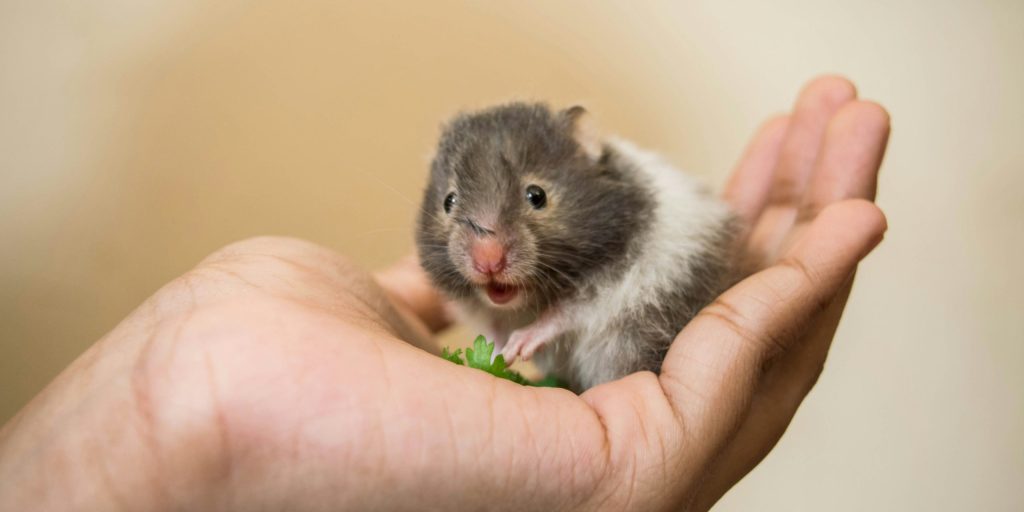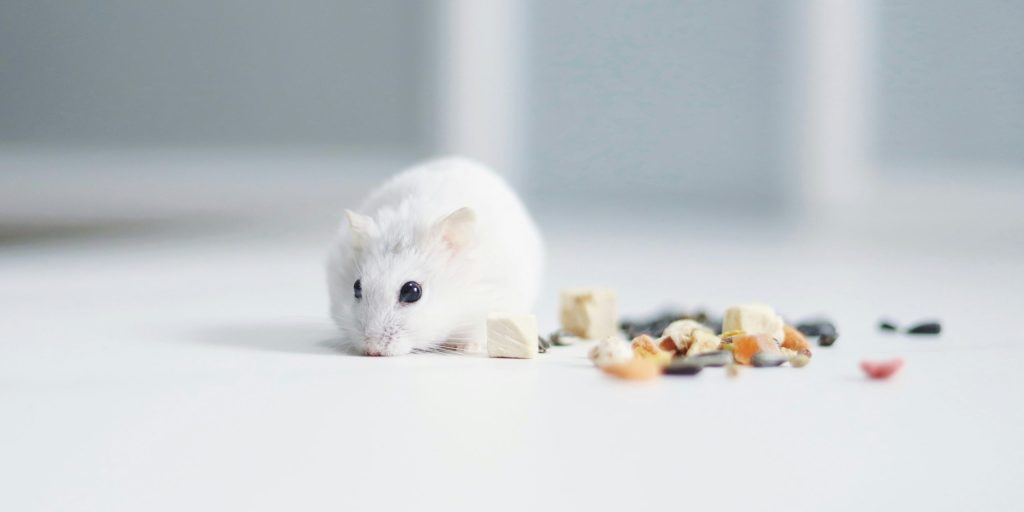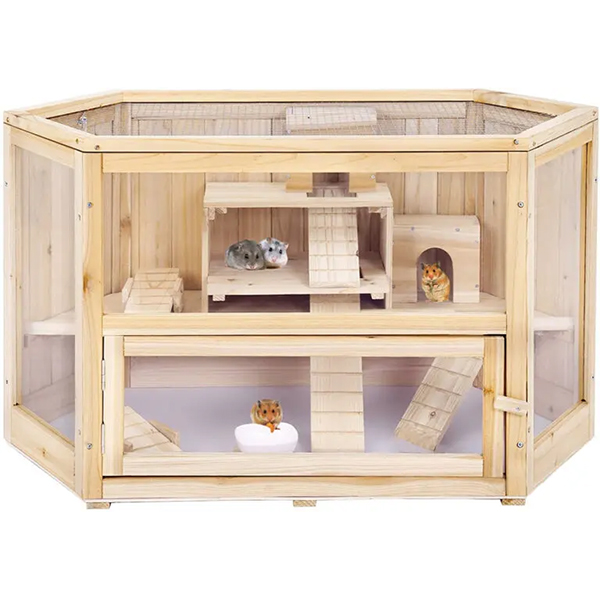Taking Care of Hamsters
General tips on how to keep your hamster happy
Small, cute, furry little animals that are a lovely companion, easy to keep and not needing much space – hamsters are the perfect pet for beginners or people low on time. That doesn’t mean, however, that they don’t have their own needs and requirements. Here are some tips and tricks on how to keep your hamsters healthy and happy.
- To prevent back injuries, make sure your hamster always has a wheel that is slightly larger in diameter than the animal.
- Never put the cage in a direct sunlight or a drafty environment.
- While dry feed provides all the essential nutrients, it’s important to enhance your gerbil’s diet with mineral cubes, fresh fruits and vegetables. Make sure to clean out the cage every 2-3 days, as hamsters love to hide their food for later, which can quickly lead up to a build-up of mouldy or rotting produce.
- If your hamster uses a hamster ball, make sure to monitor them closely to avoid perils such as the ball rolling down the stairs or getting stuck in a sunny, hot spot.

Constructing the ideal hamster habitat
The first step in keeping your hamster healthy and content is to make sure it has a proper home.
Your hamster requires the following for a cosy environment:
- A peaceful, dry, clean, and comfortable place to reside where they can sleep soundly.
- Make sure they aren’t exposed to draughty or wet circumstances – hamsters inhabit warm, arid areas in the wild.
- Hamsters should be maintained in a room where the lights turn out roughly at the same time every night. Avoid having lights on at odd times of the day. Additionally, hamsters are susceptible to direct sunshine.
- Keep your hamsters away from loud, persistent noises, as well as devices that can potentially emit infra- and ultrasounds.
- Maintain a clean and dry cage and make sure the animals have dry bedding and nesting materials.

Best diet for hamsters
The basics
Hamsters typically eat a variety of seeds, grains, insect larvae and bigger insects like crickets in the wild. Hamsters need a high-quality, balanced diet that is varied and has all the vital vitamins and minerals they require as pets.
You can get the right mix of nutrients via a blend of several seeds or a compound pellet ration designed to fulfil their demands. Additionally, provide your pet with greens in small amounts, cleansed root vegetables, and bits of fruit like apples, pears or berries. Make sure not to give your hamsters any rhubarb or grapes though, as all the parts of rhubarb and the seeds of grapes are toxic to hamsters.
Liquid or powdered food
If your vet recommends it, such as due to dental issues, you should only offer your hamster wet or powdered food.
Wet food can be challenging to remove from the cage and is prone to bacterial and mould growth, all of which could be dangerous for your hamster. To prevent the food from going bad when your hamster is ill and requires wet food, it’s crucial to remove all traces of it at least twice daily.
Access to water
Drinking water should always be available for hamsters, preferably in a bottle with a valveless sipper tube. Make sure to frequently change the water and thoroughly clean the bottle and nozzle, in order to avoid any algae or bacteria growth. You should also regularly inspect the water bottle for any leaks or obstructions.
Hamsters may have trouble overcoming the resistance from the water flow in a conventional “ball-valve” sipper tubes since they can’t provide a lot of suction. It will be simpler to drink from a sipper if the sipper has a reasonably small diameter or is built with a pinch in the segment. This might be crucial for hamsters that are young, old, or ill.
Grooming and dental care
To keep happy and healthy, your hamster will require routine care, especially if they have long hair. Speak to a pet care expert for guidance if you’re uncertain about grooming.
Hamsters bite on objects to maintain their teeth sharp and routinely worn down because their teeth are constantly growing. To keep your hamster’s teeth short and sharp, and prevent pain and health issues, you should provide them with appropriate chewing material.
Hamsters are prone to dental issues, so keep an eye on their front teeth and ask your veterinarian to make sure they’re developing normally.
Discover our splendid, hand-made hamster house!
- An ideal house for hamsters, mice, rats etc.
- Large running space
- Made of eco friendly fir wood, wire mesh, and plexiglass
- Includes 2 cottages, 3 stairs, and 2 seesaws
- 2 easy access points
- Sturdy construction and easy DIY assembly
- Dimensions: 90 x 55 x 55cm / 35.4 x 21.6 x 21.6 inches (L x W x H)
- Net weight / Gross weight: 9.5 / 12kg (21 / 26.7 lbs)






